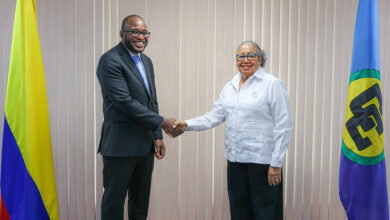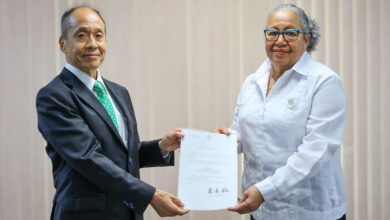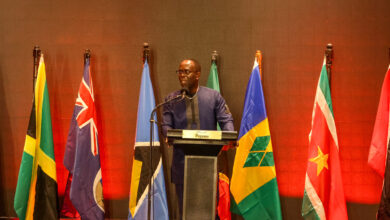Today April 7, marks the occasion of World Health Day, when the attention of the World is drawn to a particularly important aspect of Health. This year’s theme ” Safe Blood Saves Lives” gives us an opportunity to focus both on our lives as well as the lives of others.
This focus on blood safety and safe blood donation encourages Member States to commit to and support national blood programmes, and implement a legal framework, to support their national blood programme, to ensure the provision of safe blood for life saving transfusions.
One of the most important functions of a blood donation programme includes the screening of donated blood through a full investigation of potential blood donors through Health interviews and testing. Donors who have a history of certain diseases or infections or who use certain drugs are not eligible to donate blood.
This focus on safe blood donation also allows us in CARICOM Member States to focus on programmes to prevent or reduce the prevalence of diseases such as malaria, filariaisis, hepatitis B and C and HIV/AIDS so that we can enlarge the pool of persons who can safely donate blood.
It also allows us to think about the way we live and what it means for our Health and the Health of others. When deciding on whether to donate blood we have to reflect on our lives and commit to adopting healthier lifestyles that meet the criteria for safe blood donation. We need to ask ourselves whether we have in the recent past contracted a sexually transmitted disease such as syphilis or HIV that can be passed on to a patient through blood; do we live a lifestyle which puts us at undue risk of contracting an infection that can be transmitted through blood e.g had we had unprotected sexual intercourse; have we ever injected drugs; have we recently had a tatoo, skin scarification, ear or body piercing or have we had sexually contact with anyone in the above mentioned categories?
These lifestyle considerations are important ones, especially in light of the epidemic of HIV infection which in the Caribbean is rising at an alarming rate. By the end of 1998, 19 of the 21 Member States served by the Caribbean Epidemiological Centre had reported a total of 12,686 cases of AIDS or 172 cases per 100,000 population. This means that the Caribbean Region has the highest incidence of reported AIDS cases in the Americas and the fastest growing prevalence rate after sub-Saharan Africa.
Through the donation of 4.5 litres of blood ( one unit) we can save the life of a woman who starts to haemorrhage as a complication of pregnancy, a child with severe anaemia, an accident victim who has lost a lot of blood, a patient requiring major surgery or a patient with certain type(s) of cancer.
Blood is one of the most precious gifts that anyone can give to another person. It is the gift of life. Remember, you or a family member may need the gift of blood one day. You would expect to receive safe blood, others have an equal right to be sure that the blood they are given is safe. Let us commit ourselves to play our part to ensure that our blood supplies are safe.





